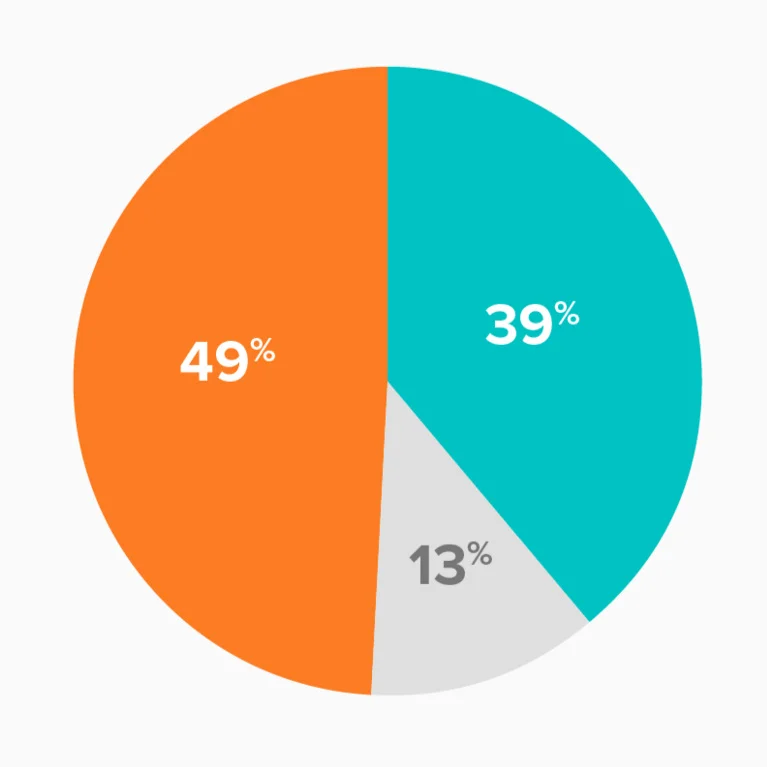Impeachment Polling May Not Be Telling The Story You Think
A spate of new polls showed higher support for impeachment this week, following Nancy Pelosi’s September 24 inquiry announcement. Twitter lit up. Analysts called the new level of backing unprecedented. Others predicted a snowballing trend toward a broad public repudiation of Trump.
The exuberance is understandable, but it’s a big overreaction, and that could be a big deal: misreading where the public is could lead to strategic and tactical political mistakes that actually strengthen Trump’s hand.
The truth is that we can’t say much yet about where public opinion on impeachment will go. Support could continue to build, but there is strong evidence that it will crest as people assimilate the news and revert to deep-seated partisan positions. There are three factors worth considering here.
1) Democrats are fueling the movement
It is true that support for impeachment is up around 10 points, but most of that increase comes from Democrats. Polling expert Harry Enten predicted that this would happen right after the Pelosi announcement, because Democrats would get on board once their leadership had decided to set sail. Increases among independents and Republicans are more modest. Removing a source of division within the ranks is a good thing for Democrats, but none of this augurs a broader reshaping ahead for public opinion or political dynamics.
2) Republicans are still solid
There are good indications of just how strong Trump’s Republican opinion firewall is. Half of Republicans say that there is literally nothing Trump could do that would cause them to support removing him from office. It is hard to overstate the importance of such a deep, intense well of support in terms of the effect on the thinking of Senate Republicans and other Republican politicians, not to mention how it impacts other, less intense Republican supporters who share social and geographic ties. No less significant, among Republicans who have heard “a lot” about the Ukraine scandal, almost 90% still oppose impeachment. While some expect that number to fall as more facts emerge, it seems at least equally likely that Republican voters are now inured to the basic fact pattern here and more details will not drive much change.
Morning Consult
3) The polling change may not even be real
The entire polling bump may have more to do with a psychological quirk in how people respond to public opinion surveys than an underlying change in opinion. Researchers have documented an effect that when big news occurs that energizes one side more than the other: people on that side can become more likely to respond to polls, and that can bias the results. The site MysteryPollster provides a telling example: the graphic below showing SurveyMonkey’s tracking of the “generic” U.S. House vote question before and after the Kavanaugh/Blasey-Ford hearings in late September 2018. Notice how stable public opinion is in the months prior to the hearing, the big shift immediately after the hearing, and then the return to the pre-hearing levels after several weeks. The shift – which was seen by other pollsters and was also reflected in Trump approval ratings – seems to have been caused almost entirely by more Republicans temporarily responding to surveys. A similar thing may very well be happening for Democrats right now.
MysteryPollster.com
It remains possible that the hopes of impeachment enthusiasts will be borne out, and that impeachment will become a hands-down political winner for Democrats. The situation can also develop further. For example, audio evidence is more powerful than text in shaping public opinion, and visual is more powerful than audio (what doomed Nixon? Tapes. What nearly doomed Trump? The Access Hollywood video). One can imagine developments along these lines that would drive significant further change in opinions.
But as of today, there is probably a greater chance that views on impeachment will settle along predictable, partisan lines, and Trump’s approval will re-stabilize at the low end of the range for his presidency, in the low 40s (where it is today). This was summed up by the subtitle on one recent poll, which read: “with voters divided, public opinion on the topic could have a low ceiling.”
All of which is why Democrats would be wise not to misread their position, or treat impeachment like a major political strength. Those who value defeating President Trump should stick with the basic plan I outlined last week: 1) move fast 2) pick one message only 3) set expectations for Senate acquittal, 4) pivot to winning middle class issues and move on.





